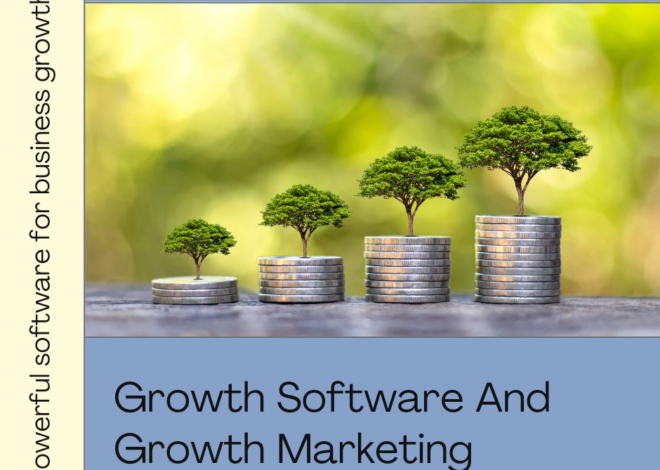
Embracing Fractional Human Resource (HR): 7 Essential Insights For Business Success
Embracing Fractional Human Resource (HR): 7 Essential Insights For Business Success
By Krishna Sibal
Introduction
To maintain a competitive advantage in the ever-changing face of business, it is not enough to simply be adaptable; one must also take a strategic approach to managing human resources. Typical human resource management methods often comprise an in-house team that works full-time and is responsible for managing various elements of employees. On the other hand, a paradigm shift is currently taking place, and firms are increasingly turning to fractional human resources (fractional HR) as a strategic answer. The objective of this blog post is to investigate the notion of fractional human resources, as well as its advantages and the ways in which this strategy can be a game-changer for firms that are striving to achieve success in the modern business environment.

Understanding Fractional Human Resources
Outsourcing particular HR responsibilities to outside experts on a project or part-time basis is known as fractional human resources. The experience of fractional human resources specialists can be utilised by organisations on an as-needed basis, as opposed to having a full-time, in-house human resources team. This strategy enables organisations to gain access to specialised expertise without the commitment of a full-time employ, which results in increased flexibility and cost-effectiveness.
The Shift in HR Dynamics
The traditional human resource management approach is facing challenges as businesses attempt to become more agile and cost-efficient. A more flexible approach to human resources management is required because of the demands of the modern workforce, which is characterised by remote employment, gig economies, and different skill sets. An effective strategic response that is in line with the shifting dynamics of the workplace is the implementation of fractional human resources.
The Benefits of Fractional HR
- Cost-Efficiency: The adoption of fractional human resources results in significant cost savings. Businesses are able to more effectively deploy their resources if they only pay for the human resources services they require at the precise moment when they require them, hence reducing excessive overhead costs.
- Expertise On Demand: With fractional human resources, businesses are able to access specialised skills whenever it is needed. Organisations have the ability to bring in specialists who have a plethora of experience for certain projects without making a long-term commitment. These experts can be brought in for everything from talent management to employee relations to recruitment.
- Flexibility in Scaling: It is especially advantageous for startups or businesses that are expanding at a rapid rate to take advantage of fractional human resources since it offers the flexibility to scale up or down according to the requirements of the organisation. In dynamic business situations, this guarantees that resources are utilised to their fullest potential.
- Focus on Core Competencies: Businesses are able to refocus their attention and resources on their core competencies when they perform human resource responsibilities through outsourcing. The implementation of this streamlined strategy not only improves overall efficiency but also enables organisations to excel in the areas in which they excel.
- Adaptability to Change: In the dynamic business landscape with constant changes in technology, regulations, and market trends, Fractional HR allows organizations to adapt quickly. Experts can be brought in to navigate and implement necessary adjustments, ensuring adaptability.
Statistics and Research Findings (2024):
- 68% of organizations outsource at least one HR function (SHRM, 2023).
- The Global HR Technology Market is expected to reach USD 56.15 billion by 2030 (Grand View Research, 2023), highlighting the growing demand for flexible HR solutions.
- 73% of teams agree that the benefits of working virtually outweigh the downsides (WebinarCare, 2024).
- 41% of businesses plan to increase their use of contingent workers, including fractional HR professionals, in the next three to five years (Deloitte, 2022).
- 57% of employers say that the top benefits of remote working are improved morale, reduced employee turnover, and reduced absenteeism (WebinarCare, 2024).
These statistics underscore the increasing trend toward a more flexible and strategic approach to human resources management.
Relevant Examples and Analogies (2024):
- The Consulting Model: FHR professionals offer specialized knowledge for targeted HR challenges, similar to how businesses hire consultants for specific projects, like implementing new talent management software.
- The On-Demand Economy: Just like ordering food delivery, FHR provides HR services on-demand, catering to specific needs without long-term contracts.
- The Orchestra: In an organization, FHR professionals act as specialized instruments, combining their expertise to create a harmonious HR symphony, much like each musician playing a crucial role.
- The Surgeon Approach: Fractional HR professionals can be the specialists businesses need for specific HR functions, similar to how surgeons are brought in for particular medical procedures.
- The Puzzle Pieces: FHR is like having a specialized puzzle piece for a specific part of the business puzzle, ensuring that every aspect is handled by an expert, contributing to overall success.

Current Trends and the Future of FHR (2024):
The COVID-19 epidemic has expedited the transition to digital transformation and remote work, which has had a substantial impact on HR principles and practices. As a result of the proliferation of hybrid workforces, organisations are facing new issues in the areas of employee engagement, communication, and talent management. As a strategic solution to handle these shifting trends, fractional human resources appears as a viable option due to its level of adaptability and skill.
Conclusion
To summarise, the implementation of fractional human resources represents a profound shift in the way that businesses view human resource management. The workforce is always changing, and external causes are constantly reshaping the business landscape. In order for organisations to remain competitive, they need to adapt. Adopting a fractional human resource management approach offers the flexibility, knowledge, and cost-efficiency that are essential for successfully navigating these obstacles. Businesses have the ability to position themselves for success in the ever-changing world of human resource management by first gaining a grasp of the benefits, then investigating pertinent instances, and finally keeping up with the most recent trends. In accordance with the proverb that states, “Change is the only constant,” fractional human resources is an effective tool for companies who are prepared to embrace change in a strategic manner.
Disclaimer:
The information provided on WonderList is for general informational purposes only. We do not make any warranties about the completeness, reliability, and accuracy of this information. Any action you take upon the information on our website is strictly at your own risk, and we will not be liable for any losses and damages in connection with the use of our website.











Thank you, I have just been looking for info about this topic for a while and yours is the greatest I have came upon till now. But, what about the bottom line? Are you positive in regards to the source?
whoah this blog is fantastic i love studying your articles. Keep up the great work! You know, many individuals are searching round for this info, you can aid them greatly.